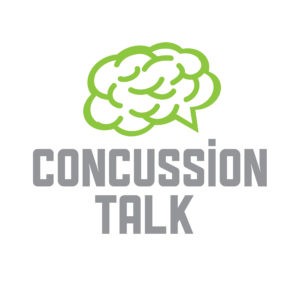First off, Movember 2012 is over and the moustache is gone. Thank you to everyone who donated, whether it was to me or not, the money goes to the same very worthwhile cause.
Now, onto the post…
Yesterday, I tweeted  a story from the New York Times, “Report Urges ‘Cultural Shift’ as Hockey Coaches Defy Concussion Specialists”. In the study, in the Journal of Neurosurgery, Dr. Paul Echlin writes, “Concussion is a significant public health issue that requires a generational shift. As with smoking or seat belts, it doesn’t just happen overnight — it takes a massive effort and collective movement.” I couldn’t agree more! Which leads me to this post.
I’ve previously written about this idea and I’m happy to see that I’m not alone. For this ‘generational shift’ and ‘massive effort and collective movement” to occur, we need to stop dividing ourselves. Right now, there seem to be two camps. Those who’ve had a brain injury or have a close relationship with someone who has, and those who play contact sports and relish the ‘contact’ aspect. The latter is the group that we’re trying to educate about concussions and the former is the group that knows about it all too well.
There has been an blatant ‘make them understand’ movement and, not surprisingly, it hasn’t worked overnight, or it’s been begrudgingly accepted. At times, the higher levels of an organization like the NHL or NFL  have fully endorsed changes to contact rules and have subsequently, unilaterally imposed them on the players and officials. In the case of the NFL,Commissioner Roger Goodell, counterproductively and idiotically, pushed for a longer season, so players could collide more and have more opportunity to be concussed. But I digress…
It feels like there is a discernible “you’re either with us or against us” attitude. Not to get too political here, but that doesn’t work if you want people to come around to the same point of view. It’s not good enough to simply dismiss the thoughts and attitudes of people who don’t appreciate the seriousness or likelihood of a concussion. It’s not good enough to say, “I understand them, they just don’t care” or “I can’t talk to those people. They don’t get it!” It’s not even good enough to understand why they don’t see the issue like you. Understanding the ‘why’ is important if the goal is educating future generations, down the road, but we want to educate the current generation as well.
We need to understand their position. Meaning, we have to appreciate their point of view. They have never been brain injured, don’t think it’ll happen to them, or are willing to take the risk that it could. When someone does or says something that is ignorant of brain injury or the likelihood that it will happen, immediately getting your back up, being offended, or responding with, “What are you? An idiot?”, isn’t going to help the situation. Don’t be selfish and lash out because it makes you feel better. Right there, you’ll be giving up on spreading awareness if you assume that someone is ignorant or doesn’t want to learn. Shaming somebody into listening isn’t a good long term strategy.
Undoubtedly, there is anger over the ignorance of brain injury, but there definitely doesn’t have to be, nor should there be. There are people, like Roger Goodell, who pay lip service to the brain injury situation in sports. There are players who hit other players hard and think that the hitting is the best part of their sport. Before we get irate and label the person a sociopath out to ruin other people’s enjoyment of the game, we need to understand, and help them understand, what they did and why it was injurious. The likelihood of a brain injury occurring in a contact sport is higher than elsewhere, so it is important that players, coaches – for youth sports, parents – and anybody involved with the sport to learn about it. However, the proper environment and atmosphere is essential. Instead of preaching that what they’ve been doing is wrong or dangerous, how about teaching a new way to play the sport aggressively. Advocating against a style of play, or against an attitude, doesn’t foster learning, it fosters resentment.
I just realized that, though I feel strongly about what I wrote, I did exactly the opposite. I spent the entire post preaching against ‘preaching against’. I’m seeing irony in irony. It’s probably time to stop writing for the day.

Leave a Reply